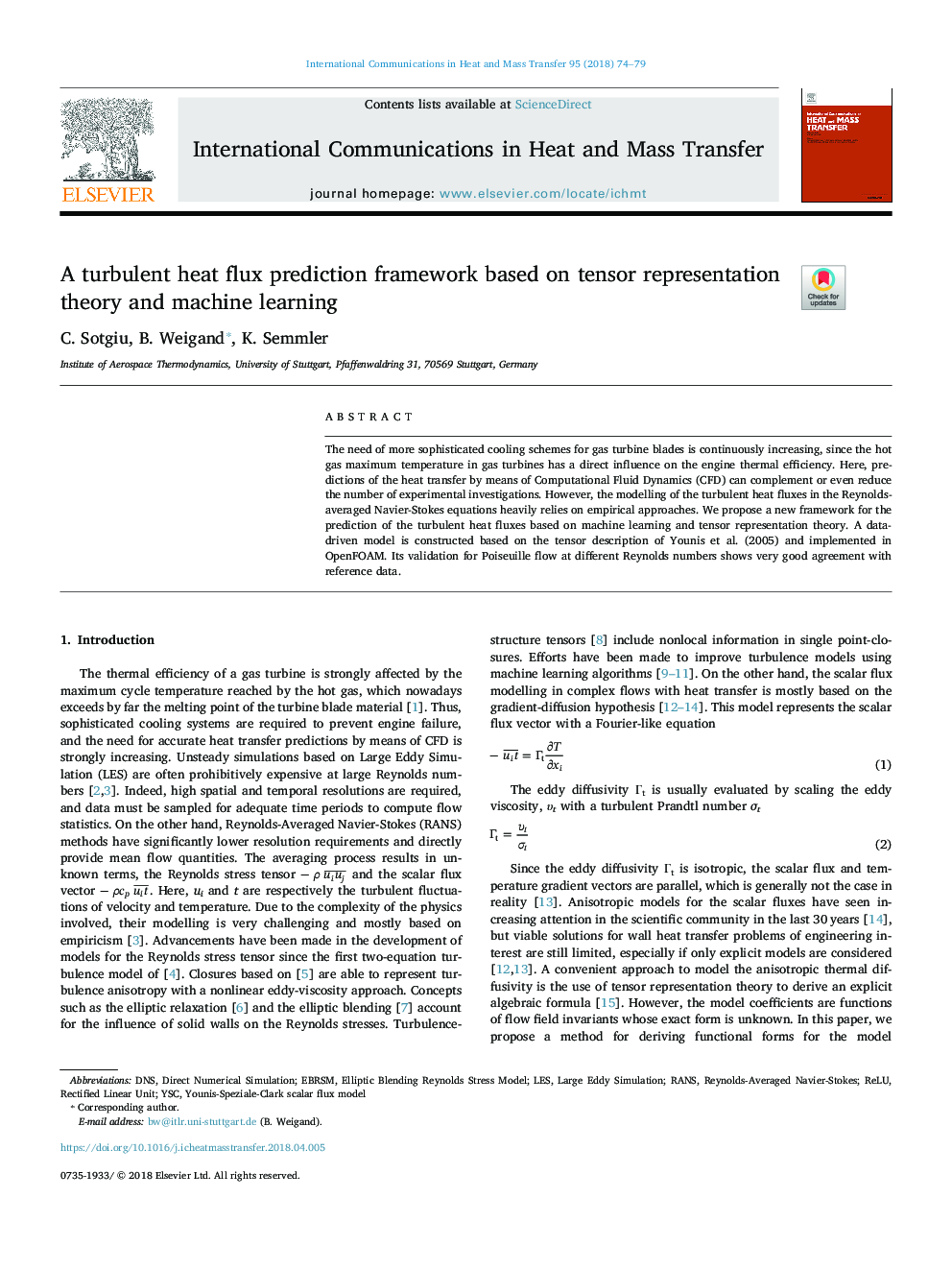| Article ID | Journal | Published Year | Pages | File Type |
|---|---|---|---|---|
| 7052804 | International Communications in Heat and Mass Transfer | 2018 | 6 Pages |
Abstract
The need of more sophisticated cooling schemes for gas turbine blades is continuously increasing, since the hot gas maximum temperature in gas turbines has a direct influence on the engine thermal efficiency. Here, predictions of the heat transfer by means of Computational Fluid Dynamics (CFD) can complement or even reduce the number of experimental investigations. However, the modelling of the turbulent heat fluxes in the Reynolds-averaged Navier-Stokes equations heavily relies on empirical approaches. We propose a new framework for the prediction of the turbulent heat fluxes based on machine learning and tensor representation theory. A data-driven model is constructed based on the tensor description of Younis et al. (2005) and implemented in OpenFOAM. Its validation for Poiseuille flow at different Reynolds numbers shows very good agreement with reference data.
Keywords
Related Topics
Physical Sciences and Engineering
Chemical Engineering
Fluid Flow and Transfer Processes
Authors
C. Sotgiu, B. Weigand, K. Semmler,
